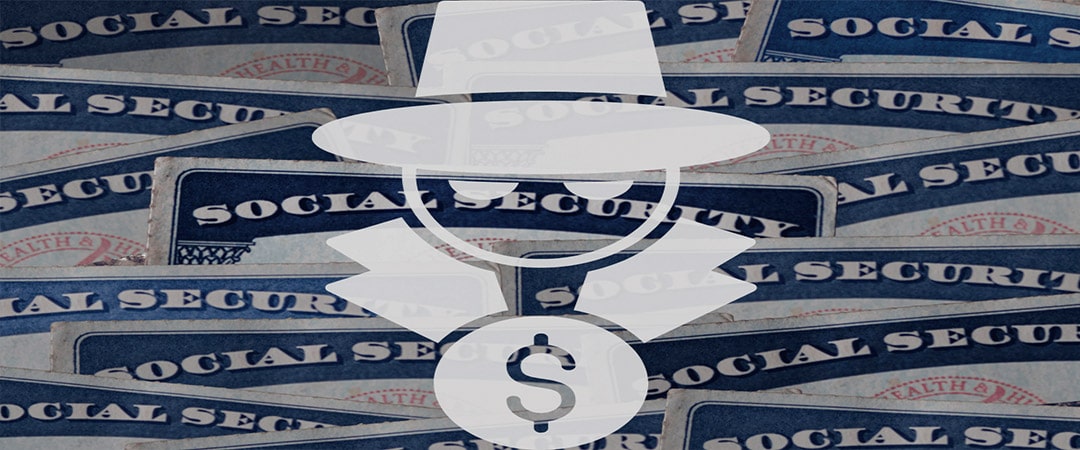Every year, seniors are hit by financial scams like investment fraud and Medicare schemes. Learn to start recognizing these scams and take practical steps to avoid them, ensuring you can protect yourself and your loved ones. Understanding your retirement readiness score can provide valuable insights into your financial health, helping you identify potential vulnerabilities and take proactive measures to safeguard your assets.
Key Takeaways
- Common financial scams targeting seniors include illegitimate investment opportunities, fraudulent lottery and sweepstakes operations, government impersonation scams, Medicare and health insurance fraud, and charity scams.
- To protect themselves, seniors should engage in regular discussions about potential threats, exercise skepticism, verify information independently, safeguard their personal information, and report any suspected fraud to authorities.
Recognizing Financial Scams Targeting the Elderly

Seniors are prime targets for scam artists due to their vulnerabilities, which include factors like:
- Cognitive decline
- Social isolation
- Greater likelihood of trusting others
Scammers exploit these weaknesses by posing as trusted figures or offering seemingly legitimate opportunities, making it crucial for seniors to remain vigilant and informed. These vulnerabilities make it easier for scammers to manipulate and deceive seniors, often leading to devastating financial and emotional consequences including:
- Losing hard-earned savings
- Facing severe emotional distress
In 2022, the financial exploitation of seniors reached alarming levels, with over 88,000 older adults falling prey to these schemes. Given the diverse nature of financial scams, early detection is paramount.
Education and awareness stand as the most effective shield to safeguard seniors. Here are some strategies to protect seniors from scams:
- Have regular discussions about potential scams.
- Encourage skepticism and critical thinking.
- Provide resources for independent verification.
- Stay informed about various types of scams and strategies to evade them
Whether it’s an unsolicited investment opportunity or a too-good-to-be-true lottery win, skepticism can be a senior’s best defense.
Investment Scams

Investment scams, including reverse mortgage scam, are particularly insidious, preying on seniors’ desire for financial security. These scams often promise low-risk, high-return opportunities that are entirely bogus. Seniors are targeted with fraudulent investment services that appear legitimate but are designed to steal their money.
Never judge an investment opportunity by the salesperson’s demeanor; con artists often sound very convincing.
Before making any investment decisions, it is wise to:
- Conduct independent research.
- Seek advice from trusted friends or family members.
- Investigate a company’s financial statements and disclosures to understand their business, products, and risks.
- Monitor investment account regularly.
- Request regular statements to ensure there are no unauthorized activities.
Lottery and Sweepstakes Scams

Lottery scams and sweepstakes fraud are another common trap for seniors. These scams deceive victims with fake lottery notifications that look legitimate but are designed to extract money or personal information from unsuspecting individuals. Some tips to avoid falling for these scams include:
- Be skeptical of unsolicited notifications claiming you’ve won a prize.
- Never send money or provide personal information to claim a prize. Legitimate lotteries and sweepstakes do not ask for fees to claim a prize.
- Research the organization or lottery before responding to any notifications. Always verify the authenticity of such claims through trusted sources before taking any action.
- If in doubt, contact your local authorities or consumer protection agency for advice and assistance.
Government Impersonation Scams Against Seniors

Government impersonation scams are increasingly common, with fraudsters posing as officials from agencies like the Social Security Administration (SSA) or the IRS.
These scammers use phone calls, emails, text messages, and letters to deceive victims into providing sensitive information, which can be used to commit identity theft. They often fabricate urgent scenarios, such as claiming there are outstanding debts or that the victim is owed a tax refund.
Email phishing is a common tactic, where scammers send emails that appear to be from government agencies, asking victims to fill out forms requiring sensitive information. These emails often contain misspellings or odd characters and prompt recipients to click on malicious links. Victims are pressured to make immediate payments through unconventional methods like gift cards, wire transfers, or cryptocurrency.
Social Security Administration Scams
Social Security Administration (SSA) scams involve fraudsters posing as SSA employees to steal personal information. These scammers typically contact victims by telephone and convince them to give up their personal information with tricks and false claims. They might even threaten to suspend the victim’s Social Security number or cut off benefits if they do not comply.
You will never face threats of arrest or legal action from the SSA, nor will they insist on specific payment methods. Understanding that SSA employees will never solicit personal information or payment via phone, email, or text is fundamental. Reporting fraud helps the SSA and the Office of the Inspector General collect data to protect others from similar scams.
IRS Scams
IRS impersonation scams often involve calls demanding immediate payment for fictitious tax liabilities using gift cards, wire transfers, or cryptocurrency. Scammers may also threaten victims with arrest or deportation if they do not pay the supposed outstanding tax debt immediately.
These threats are designed to create a sense of urgency and fear.
The IRS will never request payment via prepaid debit cards, gift cards, or wire transfers, nor demand immediate payment without first mailing a bill. Make sure to authenticate any communication claiming to be from the IRS by reaching out to the agency directly via official routes.
Elder Fraud via Romance and Grandparent Scams

Romance and grandparent scams exploit human nature to seek trusting relationships, combining emotional manipulation with financial exploitation. Seniors’ vulnerability to these scams is due to factors such as loneliness, trust, social isolation, limited online familiarity.
Scammers swindle seniors in just a few easy steps:
- Scammers create fake online profiles using stolen photos and elaborate backstories to appear genuine.
- They then invest time in building intimacy and trust by engaging in lengthy conversations and showing interest in the victim’s life.
- Once a connection is established–manipulating emotions by sharing personal stories, expressing affection, and using endearing terms–scammers introduce financial crises and request money under the guise of loans or gifts, creating a sense of urgency.
Preventive measures include:
- Being skeptical
- Verifying identities
- Guarding personal information
- Staying connected with trusted friends or family
- Avoiding financial requests
- Meeting in person
Romance Scams Exploit Seniors
Older adults reportedly lost nearly $240 million to romance scams in 2022. These scams often start with seemingly innocent conversations that quickly escalate into requests for money, leaving victims both financially and emotionally devastated. Dodge romance scams with these tips and keep your heart and wallet intact:
- Be cautious of anyone who quickly professes love or requests money before meeting in person.
- Scammers often claim to live, work, or travel abroad to build credibility.
- Confirm the identity of anyone encountered online and refrain from sending money to individuals who have only communicated over the internet.
Grandparent Scam
Grandparent scams involve scammers posing as grandchildren in distress, needing urgent financial help and asking their “grandparents” to send money. Picture “Johnny” needing bail from a llama farm—spoiler: it’s not Johnny and he doesn’t have a llama problem.
Outwit “Johnny” and other scammers like him with a few investigative tips:
- Confirm the caller’s identity by posing questions that only the genuine grandchild would know the answers to
- Reach out to other family members to corroborate the situation
Medicare and Health Insurance Scams

Medicare and Medicaid fraud cost the government and taxpayers over $100 billion annually, but the actual figures are likely much higher. Scam callers engage victims by asking conversational questions and aim to extract personal information such as Medicare card numbers or Social Security Numbers.
Especially during the Medicare Open Enrollment Period from October to December, Medicare scammers often reach out via:
- phone
- text messages
- postal mail
Watch out for sales pitches that prey on retirees’ fears about financial security and costly medical expenses.
Medicare Scams
Scammers often offer free medical supplies or genetic testing to capture Medicare information for fraudulent claims. Additionally, they may pressure individuals to activate, renew, or upgrade their Medicare cards, requiring them to provide personal information.
- Unsolicited calls from Medicare asking for personal information or offering money or gifts in return for medical care are not legitimate.
- Be wary of any unexpected offers related to Medicare and always verify the authenticity of such claims through trusted sources.
Health Insurance Fraud
Health insurance fraud involves billing Medicare for treatments or services that were never provided. Scammers often offer fake health plans, especially during open enrollment periods, to collect personal information and money from seniors.
Be cautious of unsolicited offers for new healthcare plans with better benefits. Always verify the legitimacy of any health insurance plan through official channels before making any changes.
Charity Scams

Charity scams often target seniors by exploiting their compassion, especially during crises. These scams exploit seniors’ generosity by pretending to be legitimate causes needing urgent support. Scammers pretending to be charitable organizations reach out via email or phone to solicit donations.
Before making a donation, always confirm a charity’s legitimacy. Use resources like BBB Wise Giving Alliance and Charity Navigator to research and verify charities. If a charity is not registered or lacks transparency, it’s best to avoid donating.
Fake Charities
A quick internet search of the organization’s name can help verify if the charity is legitimate. No results appearing in an internet search for a charity’s name is a strong indicator it may be a scam. Ensure the charity is tax-exempt by looking it up in the IRS’s Tax Exempt Organization Search.
Check if a charity is registered with state regulators to confirm its legitimacy. Verifying details about the charity’s programs and how donations are utilized can also help identify legitimate charities.
Caller ID Spoofing
Scammers use caller ID spoofing to make it seem like calls are coming from reputable organizations. They can spoof caller ID to display a legitimate support phone number from a trusted company. These tech support scams use tactics such as:
- Spoofing caller IDs to make their calls appear legitimate
- Threatening immediate action if the victim does not comply
Always be cautious of unsolicited calls and verify the caller’s identity before sharing any personal information. If in doubt, hang up and call the organization directly using a trusted phone number.
Protecting Your Assets

For seniors, safeguarding assets through robust retirement planning and protecting personal information is of utmost importance. Here are some steps to take if you suspect financial abuse:
- Contact the financial institution involved to report the abuse and potentially recover lost money.
- Consider seeking legal options, such as filing a civil case or requesting a restraining order.
- Familiarize yourself with state laws that freeze bank accounts in cases of suspected financial abuse.
Taking proactive steps to secure retirement and safeguard personal information can prevent financial exploitation. We can delve into particular strategies for ensuring secure retirement planning and the protection of personal information.
Secure Retirement Planning
Ensure a secure retirement and avoid financial scams or fraudulent investments by taking these proactive steps:
- Set up a trusted contact on investment accounts can be crucial to ensure protection from financial exploitation.
- Consult an attorney for estate planning topics such as power-of-attorney and successor trustee appointments is recommended.
- Take your time with investment decisions and be skeptical of ‘once-in-a-lifetime’ opportunities to avoid scams. Always verify the credibility of any investment opportunity and consult with trusted advisors.
Protecting Personal Information
Safekeeping personal and financial documents, including those related to your bank account, is necessary to protect sensitive data.
Here are some tips to help protect personal information:
- Screen phone calls and verify unknown callers who ask for personal or financial information to prevent identity theft.
- Update security measures on financial accounts after suspected elderly fraud is a key step to protect personal information.
- Always be cautious with unsolicited requests for sensitive information.
- When in doubt, consult a trusted friend or family member before taking action.
Reporting Suspected Elderly Fraud

Reporting instances of potential elderly fraud is vital in the fight against these scams. If you suspect a scam targeting the elderly:
- Contact the National Elder Fraud Hotline at 833-372-8311
- Report suspected fraud to the Federal Trade Commission via their website or by calling 877-382-4357.
Reach out to your local police department, the attorney general’s office of your state or territory, or the internet crime complaint center to report fraud. Include details like time, date, and location of the incident, names involved, and description of the suspected abuse when filing a report.
National Elder Fraud Hotline
The National Elder Fraud Hotline provides assistance in reporting scams aimed at older adults. The U.S. Department of Justice’s National Elder Fraud Hotline can be reached at 833-372-8311. Hotline operators can guide you through the steps to report elder fraud and provide resources for victims.
Reporting fraudulent activities not only safeguards you, but also aids in preventing other seniors from succumbing to similar scams. Utilizing these resources can make a significant difference in safeguarding the financial well-being of older adults.
Summary
In summary, protecting seniors from financial scams is paramount. There are so many types of scams against seniors, from investment schemes to Medicare fraud, but these practical tips to recognize and avoid them can be so helpful. Remember, education and vigilance are key in financial scam prevention for seniors.
By staying informed, verifying identities, and reporting suspected fraud, we can create a safer environment for our elderly loved ones. Let’s work together to ensure that seniors can enjoy their golden years free from the threat of financial scams.
Frequently Asked Questions
What are the common signs of an investment scam?
If you come across unsolicited investment offers, promises of high returns with low risk, and pressure to act quickly without independent verification, be cautious – these are common signs of an investment scam.
How can seniors protect themselves from lottery and sweepstakes scams?
To protect themselves from fake lottery and sweepstakes, seniors should be skeptical of unsolicited notifications claiming they’ve won a prize, especially if they require upfront payment or personal details. Always verify the authenticity through trusted sources.
What should I do if I receive a call from someone claiming to be from the Social Security Administration?
If someone claiming to be from the Social Security Administration asks for personal information or payment over the phone, it’s a scam. Hang up and report the call to the SSA or the Office of the Inspector General.
How can I verify if a charity is legitimate before donating?
To verify if a charity is legitimate before donating, you can use resources like BBB Wise Giving Alliance and Charity Navigator. Additionally, check if the charity is registered with state regulators and ensure it is tax-exempt by looking it up in the IRS’s Tax Exempt Organization Search.
Where can I report suspected elderly fraud?
You can report suspected elderly fraud by contacting the National Elder Fraud Hotline at 833-372-8311 or the Federal Trade Commission via their website or by calling 877-382-4357. Additionally, you can reach out to your local police department or attorney general’s office.




